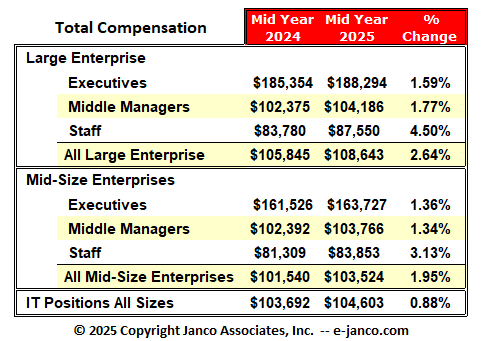Wage stagnation oozes into more workplaces
Wage stagnation oozes into more workplaces - Has your boss cut your pay? Taken away overtime? Reduced your workweek? Eliminated raises? Chopped your benefits? Put you on an unpaid furlough?
Join the millions who have seen their take-home pay flattened by the double whammy of recession and its 9.8 percent-and-still-rising unemployment rate.
Compensation so far in 2009 has been cut by the largest amount in nearly two decades, with a government index of real average weekly earnings down 1.9 percent since its high point last December. And the average workweek - now down to 33 hours - is the shortest on modern record.
Some pay cuts have gone far deeper than the aggregate data indicate.
James Pastine, a 35-year-old Kansas City architect, and his wife, Laura, also an architect, have both taken 20 percent pay cuts this year.
"We're struggling right now, but we're making it through with the children and day care and trying to make ends meet. It's definitely a lot tougher," he said.
IT Median Salaries
>Order Salary Survey Download Sample Provide Data
Typical of many, the Pastines accepted the sacrifice.
"It was the right thing to do, going with a pay cut rather than let people go," Pastine said. But, "Once you set a standard of living, it's hard to take a 20 percent chunk out of that. "
Compensation cuts have sliced across the board. But most workers who've been nipped and tucked are clear on one point: They're still in better shape than the more than 7 million U.S. workers who have lost their jobs in this recession. The unemployed have suffered the biggest pay cuts of all.
"The ones who have jobs are willing to give up a lot to keep them. They've seen the alternative," said Tom McCoy, a compensation consultant at Intellithink.
Les Butterworth, a driver for YRC Worldwide Inc. , accepts that wage reductions are the cost of business survival in this recession.
He took a 10 percent wage cut in January, followed by another 5 percent cut in August.
"Even with the pay cut, it's still been a good wage," he mused.
"My kids are grown up and out of the house, so it's just me and my wife," said Butterworth, 51, who's been an over-the-road driver for 23 years. "It would be worse if I were a dock worker. Drivers can usually make up for pay cuts by working longer. "
That resilient attitude is shared by many workers.
Fortunately, too, paycheck chiseling has been muted by recent deflation in core consumer prices, giving the sense that most workers are running in place financially.
Still, the cuts make workers cautious.
Mike Taylor, who works for the Unified Government of Kansas City, Kan. , and Wyandotte County, has to take one unpaid furlough day a month for 15 months.
Like 17 percent of U.S. employers who have had unpaid furloughs this year, his employer mandated unpaid days off as well as freezing 2009 and 2010 pay (excluding public safety workers).
"It amounts to a 41/2 percent pay cut, which is definitely taking a bite out, but it's a better alternative than laying off more employees," said Taylor.
"It was great to have a long weekend, but when the paycheck came it was, 'Oh boy, there's not as much there. ' So, yes, my wife and I are being a bit more careful about making big purchases. "
That common reaction to paycheck slicing has put the fear of a lousy holiday shopping season into retailers. Chapped by layoffs and pay cuts, consumer spending has dwindled.
Cautious spending is a logical reaction when workers paid by the hour have, on average, seen their weekly work hours plummet.
Since the recession began in December 2007, total weekly pay for private production and non-supervisory workers has declined on a month-to-month basis in 16 out of 21 months.
Total pay for that sector - which accounts for about 8 in 10 members of the work force - fell for an unbroken 10-month stretch, beginning in August 2008.
In 1981-1982, the most recent recession in which the job market tanked as badly as this one, the same index fell for only two consecutive months.
"For the first time in their lives, a lot of people are learning to be frugal," Geneva High, executive director of Lee's Summit Social Services, said Friday.
"They are still working. But they've had pay cuts and their time cut back. Now they're trying to get by on less income. They're using coupons and shopping at thrift stores. And they're coming in here. Our caseload has doubled. "
Even in the "hot" industries where workers are in demand, pay has tightened.
Travis Lewis, an area director for Ajilon Professional Staffing, said a national survey found a salary decline of 0.85 percent expected next year for finance and accounting professionals.
"Salary increases are stagnant for mid-level finance and accounting workers, and starting pay is lower - say, $38,000 instead of $40,000," Lewis said.
Similarly, the 2009 IT Salary Survey found the average information technology salary dropped from $79,005 in January 2008 to $77,367 in January 2009.
AON Consulting said 68 percent of U.S. technology companies have implemented salary freezes, 62 percent have had layoffs, 30 percent mandated time off, and 17 percent suspended 401(k) matches.
Salary research by Robert Half International calls for continued "flat or modest declines" in accounting, finance, IT and administrative starting salaries next year.
Meanwhile, salaried employees, accustomed to average annual raises of about 3 percent to 4 percent, this year were in line for half that, according to the Society for Human Resource Management.
But one of the biggest challenges to workers' economic comfort will rear its head in the current open enrollment season for employer-sponsored health insurance plans.
To continue to afford health insurance, many employers have shifted compensation costs from wages and salaries to the benefits side of the ledger, effectively cutting into raises, bonuses, profit-sharing or 401(k) matches.
And most are asking employees to shoulder higher premium costs or bigger deductibles.
There's another wrinkle in the pay picture that, perversely, will affect some workers precisely because inflation has been held in check.
Some of the lowest-wage workers around the country will be suffering pay cuts. In Colorado, for example, the state's minimum wage, indexed to inflation, will fall on Jan. 1 by 4 cents an hour to $7.24.
Minimum-wage earners in that state will actually get only a 3-cents-an-hour wage cut, though, because the state's wage will then be superseded by the federal minimum of $7.25.
The recession has also taken a compensation bite the top end of the pay scale.
Bryan Cave, one of the biggest law firms in Missouri, has scaled back starting salaries from $110,000 to $100,000.
"It's a recognition of market conditions and demand," said managing partner Robert M. Thompson. "It's an attempt to align our cost structure with the current economy. "
He added, "We would expect to be cautious and conservative with any increases in the immediate future. "
For most of the work force, whether earning an entry-level or upper-middle-class income, there's sensitivity to any takeaway because of the unrelenting publicity about executive compensation gains.
It rankles many workers that Wall Street execs, whose companies laid off workers and took taxpayer bailouts, continued to get multimillion-dollar bonuses while the livelihood of others throughout America was lost or cut.
Unfortunately, the BNA Wage Trend Indicator, an index that predicts wage growth for private-sector workers, calls for further weakening.
BNA economist Kathryn Kobe forecasts year-over-year wage growth to fall to 1 percent or less, well below the record low of 1.6 percent recorded in the first half of the year.
"We're seeing an awful lot of weak indicators on the employment side, and it remains to be seen how soon the economic recovery is going to feed through to jobs. It's a little hard for most workers to demand huge salary increases when there are so many unemployed people lined up waiting for jobs," Kobe said.
There are signs, though, that the pay crimp may be easing, at least in some quarters. General Motors said in September that it was restoring its 3 percent to 7 percent pay cuts for most salaried workers whose pay had been cut in May.
Ditto at technology company Advanced Micro Devices, which is restoring the 5 percent to 20 percent pay cuts it imposed earlier this year.












